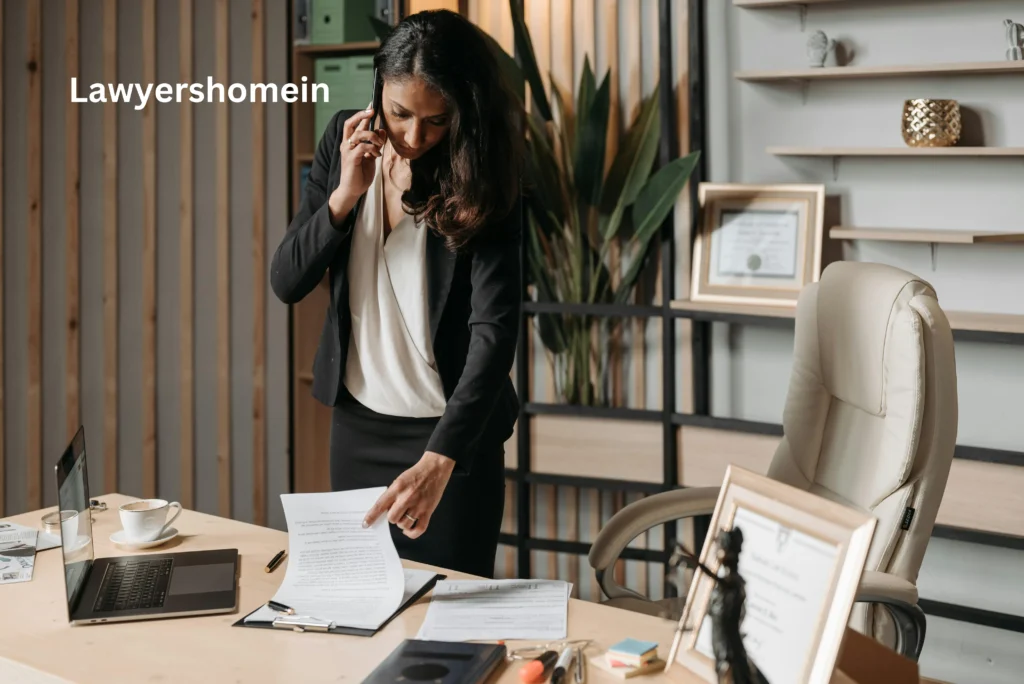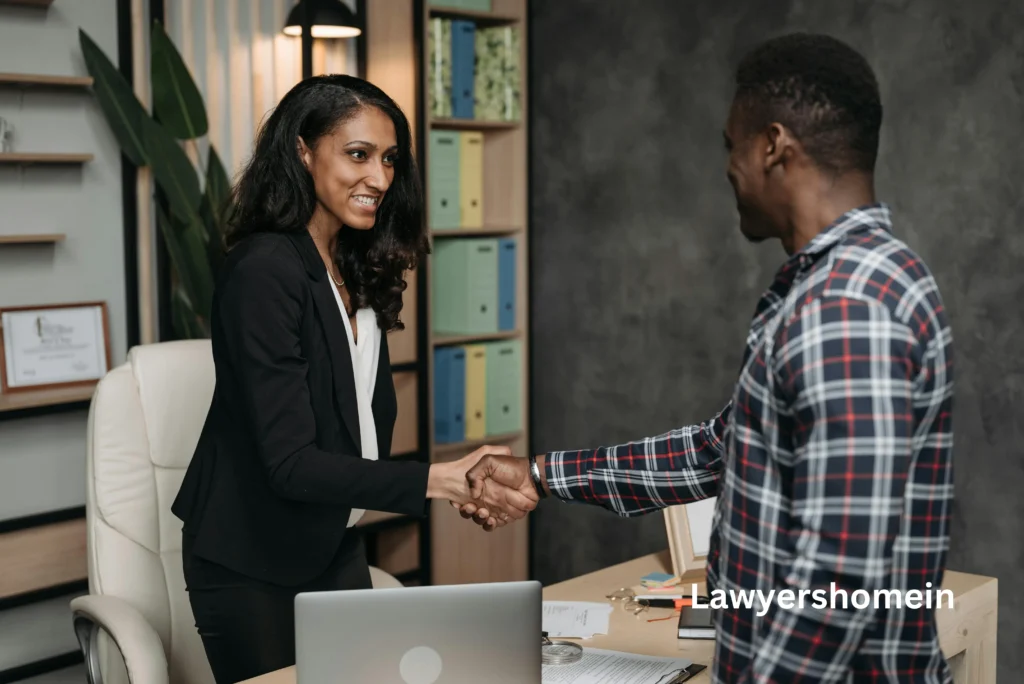Understanding Criminal Charges
Familiarizing yourself with the type and particulars of the criminal charges allows you to create a sound defense. Criminal defense lawyers, specialized in this field, are the ones to explain to the clients the type of charges they are facing, provide the necessary legal definitions, and the potential penalties they can get.
As whether the charges are to be treated as misdemeanor or felonies, the repercussions can be severe ranging from fines or probation to extended jail term. Lawyers tell the court about the nature of the crime, the elements of which are the “intent” and the “action”, and how the prosecution must prove these elements to the level of the court beyond a reasonable doubt. The core concept must therefore help clients in decision making regarding their defense.
Case Evaluation and Strategy Development
In order to develop an efficient defense strategy, a comprehensive case investigation shall be undertaken. The lawyers go through with all available information such as the police report, the witness statement and any physical evidence. They assess the strength and weaknesses in the claim of the prosecution as well as the other defense options. It may involve the assessment of alibis, review of procedural mistakes, the testing of witness’s credibility and so on. The amount of sophistication with which the case is known, attorneys can devise a special defense methodology that responds to the particularities and legal challenges of the given case.
Further Investigation and Collection Evidence.
Reliable defense stands on the bedrock of careful investigation and collect of thereof. The layers of defense, between the lawyers and private investigators and forensic experts, very often bring in the new or the existing evidence that is affected or redone. That can happen by connecting to surface mind cameras (CCTV), interviewing witnesses, and identifying dissimilarities or signs of fake at the scene. In light of the strong cornuSrtional bases, the lawyers will shed doubt on the prosecution’s version of the story and will fire questions on the guilt of their client.
Pretrial Motions and Hearings is next to being examined.
In the beginning phase of criminal cases, motion hearings and other scheduled proceedings are some of the key aspects that shape a trial’s outcome. Lawyers may make motions to have evidence obtained unlawfully excluded from use, to quash charges for lack of reliability, or to move the court to have place onto a venue which could result in an impartial or fair trial.
The delicate consideration that might affect the case negatively through use of inadmissible evidence or even no case stipulation is that. At this hearing stage, alternative plea deal arrangement may be reached and or the resolve might come through alternative resolutions. Well-trained attorneys use preliminary hearings as tools to bolster their cause by debilitating the perception of guilt of the defendant.
Plea Bargaining

Plea bargaining is a method of negotiation whereby the defendant agrees to plead not guilty to either a lesser charge in exchange for a lesser sentence or no trial at all. Legal professionals, through their possession of legal knowledge and hands-on experience in the case, perform an influential role in these negotiations, with their skills helping them to gain beneficial conditions for their clients.
The plea bargains represent the fact that people may not end up with really awful consequences if they are able to prevent the risks of the trials. Lawyers are orderly examining the case against the prosecution, and advise clients to work the most convenient way, meaning they either accept the plea deal or proceed to the trial.
Discovery and Court Proceedings and Advocacy
Trial preparation involves rigorousness planning down to the minutest detail. The legal professionals are responsible for a trial process which involves a jury selection, the formulation of opening statements, making cross-examinations, and preparing closing arguments. They collect evidences, arrange them and also interview as many witnesses as possible and also they also foresee the actions which prosecution tends to take.
In the course of a trial, the experts render the defense case usually by undermining the validity of the prosecution’s evidence and planting doubt in the minds of the trios to some extent. To be right and effective lawyer representation it is not enough to have only legal savvy but also to being able to communicate clearly and think strategically side by side to it.
Cross-Examination of Witnesses
Questioning the prosecuting witnesses in the right manner is one of the most fascinating aspects of fighting against criminal cases. Lawyers try to throw into doubt the credibility and reliability of witnesses by advancing inconsistencies of their testimonies, disproving prejudices and interrogating either their memory or perception. The process of scrutinizing the opponent side during cross-examination can help in weakening the prosecution’s case and make the doubt about the defendant’s innocence stronger. The defense lawyers investigate every witness carefully, looking for their previous records as well as writing inquiries which can unmask any vulnerability sites in their statements.
Presenting Defense Evidence
Evidence in favor of the defendant is a central role that occurs during the course of a criminal trial. Legal agents will advance the facts and evidence which will them absolve the accusations or reduce the liability of the suspect. For a defense strategy that involves alibi witnesses, expert testimonies, and physical evidence that casts doubt on the prosecution’s claims, this could be one of the possible scenarios.
In addition to ensuring that all evidence is admissible and presented in a clear and convincing manner, lawyers need, also, to tell a compelling story to the jury. As the finale, the defense lawyers argue for their evidence against the objection held by the prosecution. Through a well-structured presentation of their defense, attorneys get the jury to have reasonable doubt for the prosecution and acquittal or less charge may be issued.
Jury Instructions and Deliberation
To sum up, the jury concludes by giving legal officials the remaining important look into jury instruction. These members of the jury assist the judge in elaborating on an objective set of instructions which should fully convey the factual principles the jury will use to make their judgment.
These procedures include: doubting system of proof and the tool of the court offense which serve a purpose to be also a guided defense in the trials. The members of the defense council should prepare a checklist that would contain well-elaborated messages that inspire the armed forces and any problem items that could be cloudy. When establishing who is right and who is wrong, right jury instructions become very important and making the right indictment ruins everything.
Post-Trial Motions and Appeals

The defense waltz goes on until in case the judge enjoins a sentence. This is when it goes head-to-head with the prosecution in a motion of jail-sentence successfully or in the trial’s appeal. Among their causes for new trails is insisting on appeals where the judgment was not substantiated over the soundness of the evidence presented in the court. Attorneys’ readiness to serve appellate briefs often occurs when there is a request for an extra trail.
They expose the error or movement of the proceedings together with circumstances that may have resulted in the jury’s decision as perverted during the entire process. Yet, the appeals process is a matter that entails such enormous intricacy which requires a deep and thorough knowledge in the appellate branch of the law and appellate court procedures. After trial, the main goal of the attorneys will be to obtain pardons in the cases of unjust conviction and to receive the ideal resolution for the clients. The latter will ensure the clients get due justice.
Conclusion about Defense Lawyer
The jobs of criminal lawyers as well as defense attorneys are crucial in upholding the rights of people when they are accused of any crimes. Involvement of a lawyer does not end at court as they will also study the charges, conduct a case evaluation, and research as necessary. Those lawyers have been doing their best to convict those who have confessed or to prove them guilty in every case by investigating fully, gathering crucial evidence, and weakening the prosecution’s version of facts. Through prepetition motions it is possible to suppress unlawfully acquired proof or even to seek to strip charges.
Successful plea bargaining is often calculated to bring out the reduced charges or sentences which is a perk to the clients. If the matter is heard in an actual trial of the court, these lawyers prepare in a meticulous way, according which they create strong arguments, question the witnesses and present significant evidence. Through their ability to confuse, there is a process of creating reasonable uncertainty in the jurors’ minds intended to achieve an acquittal or a more favorable sentence of judgment.In the post-trial phase, the team isn’t stopping their fight; they are still filing their motions and pursuing the appeals, challenging any mistrials and procedural errors that may have happened during the trial.
Advocacy is what allows clients to go for a fair and just hearing at the end of the day. Moreover, these specialists will often aid in the expunging of criminal records, thereby facilitating clients’ transition from acquittal or post-sentencing to a new life without these experiences weighing them down.Basically, defense counselors provide a full range of legal services, for example from the moment of being indicted through the court session and beyond it.
They vigilantly observe clients rights, and they prosecute due process as the foundations of justice systems. They show this through their competence and dedication in trying to achieve the best possible outcome for their clients and reaffirm the important principle that every person deserves to be treated fairly and have a strong defense.

